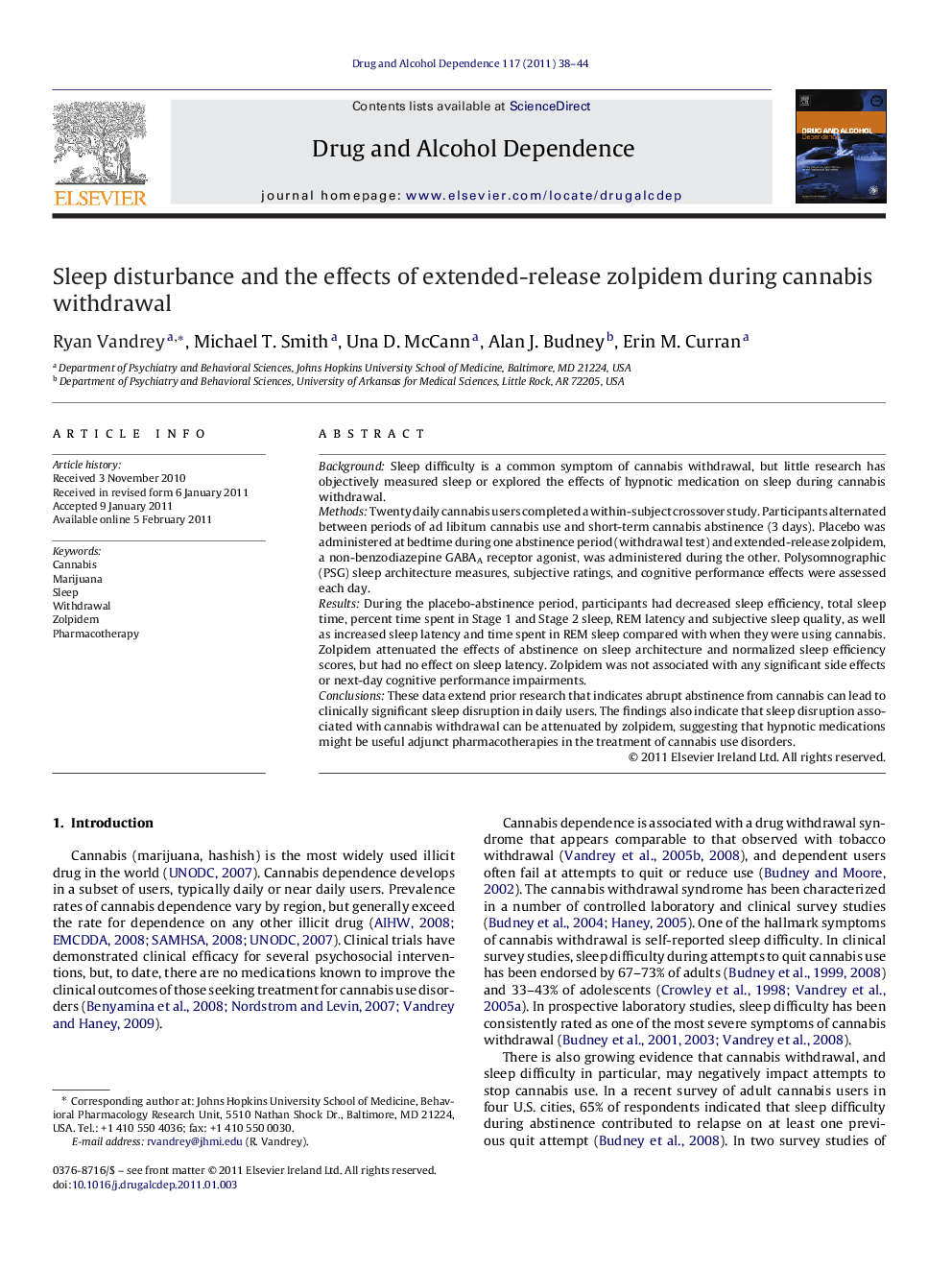| Article ID | Journal | Published Year | Pages | File Type |
|---|---|---|---|---|
| 1070265 | Drug and Alcohol Dependence | 2011 | 7 Pages |
BackgroundSleep difficulty is a common symptom of cannabis withdrawal, but little research has objectively measured sleep or explored the effects of hypnotic medication on sleep during cannabis withdrawal.MethodsTwenty daily cannabis users completed a within-subject crossover study. Participants alternated between periods of ad libitum cannabis use and short-term cannabis abstinence (3 days). Placebo was administered at bedtime during one abstinence period (withdrawal test) and extended-release zolpidem, a non-benzodiazepine GABAA receptor agonist, was administered during the other. Polysomnographic (PSG) sleep architecture measures, subjective ratings, and cognitive performance effects were assessed each day.ResultsDuring the placebo-abstinence period, participants had decreased sleep efficiency, total sleep time, percent time spent in Stage 1 and Stage 2 sleep, REM latency and subjective sleep quality, as well as increased sleep latency and time spent in REM sleep compared with when they were using cannabis. Zolpidem attenuated the effects of abstinence on sleep architecture and normalized sleep efficiency scores, but had no effect on sleep latency. Zolpidem was not associated with any significant side effects or next-day cognitive performance impairments.ConclusionsThese data extend prior research that indicates abrupt abstinence from cannabis can lead to clinically significant sleep disruption in daily users. The findings also indicate that sleep disruption associated with cannabis withdrawal can be attenuated by zolpidem, suggesting that hypnotic medications might be useful adjunct pharmacotherapies in the treatment of cannabis use disorders.
